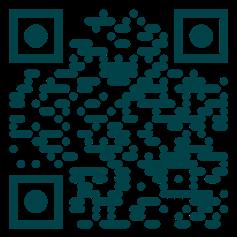Our Principles for Equity-Centered Health Science Knowledge Systems
We propose a reimagining of health science for health systems, policymakers, civil society, and academia through the following principles to advance equity, justice, and diverse health knowledge production:
1 Health and well-being are holistic and interconnected
Embrace an expansive understanding of health and well-being that incorporates physical, mental, social, cultural, spiritual, and environmental dimensions. This requires changes in policies, research, partnerships, education, service delivery, and financing. Integrate community narratives and individual lived experiences into understanding the needs and solutions held in communities, such as social, art, and nature prescribing and person-centered care. This recognizes that health and well-being are shaped by relational, ecological, and systemic factors, which is reflected in updated health science frameworks.
2 Justice and knowledge pluralism
Recognize and incorporate diverse health and well-being knowledge systems, particularly those grounded in Indigenous traditions and local communities, through changes in policies, research priorities, knowledge generation methods, and deeper engagement with communities and affected individuals. Recognize that Indigenous and other knowledge traditions that are not mainstream in high-income countries meaningfully and powerfully inform their communities’ well-being. Different systems generate knowledge and evidence that are holistic, territorially grounded, and nurture individual, community, spiritual, and ecological ways of living well.
3 Decolonization of health research and practice
Engage actively through dialogue, policies, and partnerships at all health system levels to dismantle historical and colonial power imbalances that have been instituted through historical and colonial practices into both health education and health services. These currently dominate health research, evidence generation methodologies, aid and development programming, and governance systems across all levels of global health systems. Authority, leadership, and resources must be substantially shared with historically marginalized and underserved communities to ensure that health policy, research, programming, and services are designed around community priorities and ways of working.
4 Equity and human rights are the foundational goal
Embed human rights as the foundation to achieving and nurturing equitable and contextual health and well-being. In health science research, knowledge, and evidence production, this can take the form of rights-based, anti-racist, feminist, ecological, and anti-colonial approaches across health science policies, medical education, health service programs, and practices. Develop accountability mechanisms to address institutional biases and measure progress.
5 Community-driven leadership and collaboration for health and well-being
These principles aim to advance equity, justice, and diverse health knowledge production.
Work with communities as co-creators of knowledge, not as passive recipients. Participatory approaches, such as action research and local leadership, should be mainstreamed in designing, implementing, and evaluating interventions that reflect experiences and cultural contexts.
Recommendations
Cross-sectoral collaboration and bold action are necessary to expand the health science knowledge system. We call on policymakers, institutions, civil society, public health practitioners, academics, and communities to take the following actions.
We call on policymakers and governments to:
• Ensure that Indigenous, local, and members of relevant communities are present, participate actively, and are given priority at the highest levels of local national and global policymaking practices.
• Integrate Indigenous, local, and community-based perspectives into medical curricula, research, and policy frameworks to create a holistic understanding of health in a way that is not extractive and creates reciprocal benefits.
• Increase funding for community-led health initiatives, including the restoration of ecosystems and use of food and medicinal plant resources, ensuring resources are conserved, equitably distributed, and prioritize marginalized populations.
• Move beyond clinical and biomedical metrics to include measures of social, cultural, spiritual, and ecological well-being, and increase funding for social, art, and nature prescribing programs to better address these measures within mainstream healthcare systems.
• Build equitable international collaborations that prioritize knowledge exchange and purposeful redistribution of resources.
• End knowledge extractivism, co-optations, and for-profit patenting by prioritizing local leadership and community collaborations in all steps of health research and political decision making, including research designs, policy development, technological innovations, and the formulation of goals, recommendations, and programs.
We call on health institutions and researchers to:
• Prioritize diversity in ways of approaching research methods and practice.
• Include decolonial, Indigenous, gender responsive, and feminist ways of thinking about research.
• Transition from exploitative research methodologies to co-creative approaches that center the leadership of impacted communities through decolonizing research. This should reduce the overwhelming influence of intellectual and economic power of centers of health system knowledge production in the "Global North" (i.e., former and current empires), creating new research institutions that are dedicated to pluralism and advancement of Indigenous knowledge systems.
• Commit to equity and epistemic justice by recognizing that Indigenous and other knowledge traditions have greater historical trajectories and ways of generating evidence from real-world data (RWD) that is holistic, territorially grounded, and nurtures individual, community, spiritual, and ecological ways of living well. Achieving equity in "health" is only possible under the guidance of longer intellectual traditions and ancestral orientations.
• Ensure interprofessional collaboration that bridges biomedicine with traditional and Indigenous healing knowledge systems and practices.
• Promote education and training programs that emphasize holistic approaches like using human beings as pharmacological models instead of only invitro and invivo models, as well as social, art, and nature prescribing, drawing on biopsychosocial, ecological, and spiritual dimensions of health.
• Center marginalized voices in research design, policy formulation, and decision-making processes.
We call on civil society and communities to:
• Maintain their traditional knowledge by continuing to care for and learn from their elders.
• Remain vigilant of efforts to co-opt their knowledge and strategies.
• Continue with their brave efforts to defend life and holistic practices for health and well-being.
• Fight for inclusion in health decision making and ensure their priorities shape research and policy through civic action and political lobbying.
• Establish platforms for co-creation of knowledge that invite other diverse communities and marginalized groups.
• Prioritize and mainstream community-driven leadership and participatory approaches, ensuring that communities co-create health knowledge, research, and policy at every stage.
Further Steps
• Public health practitioners should include community sanction and recognized community-based healers.
• Educational programs need to be designed and organized for funders to sensitize them to the value of holistic healthcare.
• Community-owned healthcare enterprises need to be encouraged in the health sector to reduce the influence of profit-oriented private sector and commercial entities.
Knowledge institutions, universities, and academia need to broaden the framework of valid knowledge from conventional reductionist science and include new modes of publications and peer review that accommodate multi-lingual and multi-media accounts of reliable knowledge.
Call to Action
Achieving a pluralistic and equity-centered health science knowledge system is not just aspirational, it is imperative for global health, environmental sustainability, and social justice. The urgency of this transformation demands collective responsibility and bold action from all sectors: policymakers, researchers, health institutions, civil society, and communities.
We, the signatories, offer our knowledge, experience, and will to build the spaces, mechanisms, and instruments to make our recommendations viable.
This Statement reflects a consensus among Salzburg Global Fellows who attended the Salzburg Global session on "Centering on Equity: Transforming the Health Science Knowledge System" in October 2024.
The views expressed here are those of these Fellows individually and should not be taken to represent those of any organizations to which they are affiliated.
Salzburg Global gathers open-minded leaders for breakthrough conversations on pressing global issues. Since 1947, our programs have worked to overcome barriers and open up a world of better possibilities.


